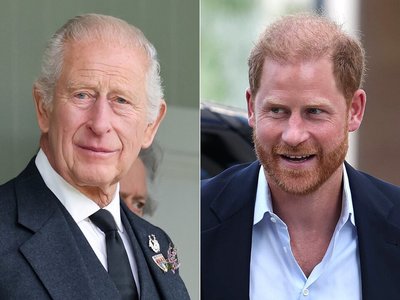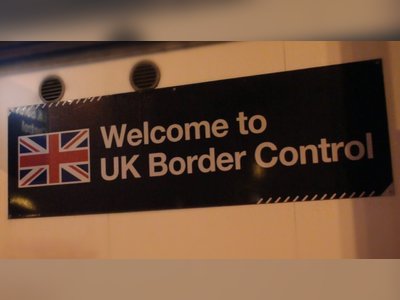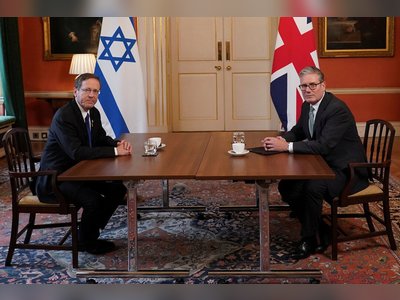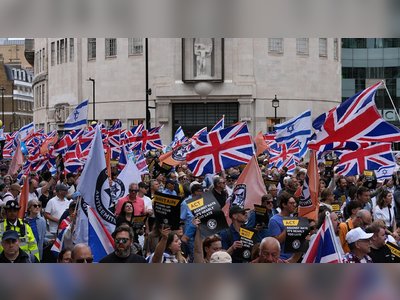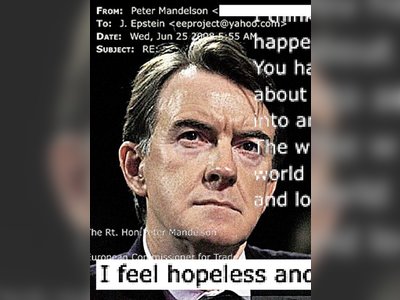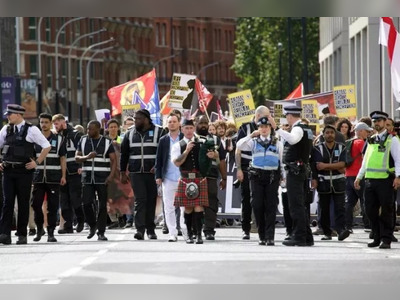Supreme Court temporarily allows Trump to pause billions in foreign aid
Chief Justice Roberts issues administrative stay allowing delay in $4 billion in approved foreign aid spending while justices review the appeal
In a significant development in the ongoing legal dispute over executive authority and Congressional spending power, Chief Justice John Roberts of the U.S. Supreme Court on Tuesday issued an administrative stay, temporarily halting a lower court’s order that required the Trump administration to disburse approximately four billion dollars in foreign aid by the end of the month.
The stay permits further judicial review of the appeal and maintains the status quo for the time being.
The funds in question, originally sanctioned by Congress for global health and HIV/AIDS initiatives, were slated for disbursement by September thirty, but have been deemed wasteful by the administration.
On his first day in office, President Donald Trump signed an executive order seeking to reduce foreign aid commitments—actions that have been challenged in court since then.
U.S. District Judge Amir Ali, a Biden appointee, had ruled earlier that the administration cannot unilaterally withhold funds appropriated by Congress without approval from the legislative branch.
He argued that spending is a “joint enterprise between our two political branches,” and that the executive branch cannot override the legislature’s authority in this matter.
Judge Ali’s decision, issued on Wednesday of last week, called on the administration to release the specified funds—findings rejected by the administration, which promptly appealed to higher courts.
The U.S. Court of Appeals for the D.C. Circuit declined to pause Judge Ali’s order.
In response, the administration turned to the Supreme Court, where Chief Justice Roberts, the justice responsible for emergency matters arising out of Washington, D.C., granted a temporary stay.
The parties challenging the funding freeze have been asked to submit a response by Friday afternoon, according to Roberts’s order.
While this pause does not reflect how the Supreme Court may ultimately rule, it offers the executive branch more breathing space to pursue its legal position.
At issue is nearly four billion dollars of foreign aid approved by Congress but withheld by the administration, including funding for global health and HIV/AIDS programmes.
The administration has signaled plans to expend six and a half billion dollars of the broader aid envelope by September three hundred and thirty—a figure that includes some of the contested funds—while seeking judicial permission to hold back the remainder.
In late August, President Trump notified Congress of his intent to employ a rare "pocket rescission" mechanism to cancel the remaining funds unless legislators act to approve the rescission—a move that has complicated ongoing negotiation efforts over government funding and raised questions over separation of powers.
Plaintiff groups have warned that an administrative stay at this stage may effectively decide the case in the administration’s favor by delaying enforcement until the funds expire.
They argue that allowing the executive branch to ignore enacted law while awaiting judicial review would fundamentally alter the constitutional balance between the President and Congress.
This dispute follows earlier legal proceedings stemming from Executive Order 14169, issued January twentieth, 2025, which imposed a ninety‑day suspension on U.S. foreign development assistance pending a strategic realignment.
That order, while exempting certain emergency programmes, triggered multiple legal challenges and injunctions by courts reaffirming Congressional control over appropriated funds.
The Supreme Court’s temporary stay marks a tactical victory for the Trump administration, whose broader effort to shape U.S. foreign assistance policy remains at the centre of this constitutional confrontation.
The stay permits further judicial review of the appeal and maintains the status quo for the time being.
The funds in question, originally sanctioned by Congress for global health and HIV/AIDS initiatives, were slated for disbursement by September thirty, but have been deemed wasteful by the administration.
On his first day in office, President Donald Trump signed an executive order seeking to reduce foreign aid commitments—actions that have been challenged in court since then.
U.S. District Judge Amir Ali, a Biden appointee, had ruled earlier that the administration cannot unilaterally withhold funds appropriated by Congress without approval from the legislative branch.
He argued that spending is a “joint enterprise between our two political branches,” and that the executive branch cannot override the legislature’s authority in this matter.
Judge Ali’s decision, issued on Wednesday of last week, called on the administration to release the specified funds—findings rejected by the administration, which promptly appealed to higher courts.
The U.S. Court of Appeals for the D.C. Circuit declined to pause Judge Ali’s order.
In response, the administration turned to the Supreme Court, where Chief Justice Roberts, the justice responsible for emergency matters arising out of Washington, D.C., granted a temporary stay.
The parties challenging the funding freeze have been asked to submit a response by Friday afternoon, according to Roberts’s order.
While this pause does not reflect how the Supreme Court may ultimately rule, it offers the executive branch more breathing space to pursue its legal position.
At issue is nearly four billion dollars of foreign aid approved by Congress but withheld by the administration, including funding for global health and HIV/AIDS programmes.
The administration has signaled plans to expend six and a half billion dollars of the broader aid envelope by September three hundred and thirty—a figure that includes some of the contested funds—while seeking judicial permission to hold back the remainder.
In late August, President Trump notified Congress of his intent to employ a rare "pocket rescission" mechanism to cancel the remaining funds unless legislators act to approve the rescission—a move that has complicated ongoing negotiation efforts over government funding and raised questions over separation of powers.
Plaintiff groups have warned that an administrative stay at this stage may effectively decide the case in the administration’s favor by delaying enforcement until the funds expire.
They argue that allowing the executive branch to ignore enacted law while awaiting judicial review would fundamentally alter the constitutional balance between the President and Congress.
This dispute follows earlier legal proceedings stemming from Executive Order 14169, issued January twentieth, 2025, which imposed a ninety‑day suspension on U.S. foreign development assistance pending a strategic realignment.
That order, while exempting certain emergency programmes, triggered multiple legal challenges and injunctions by courts reaffirming Congressional control over appropriated funds.
The Supreme Court’s temporary stay marks a tactical victory for the Trump administration, whose broader effort to shape U.S. foreign assistance policy remains at the centre of this constitutional confrontation.
